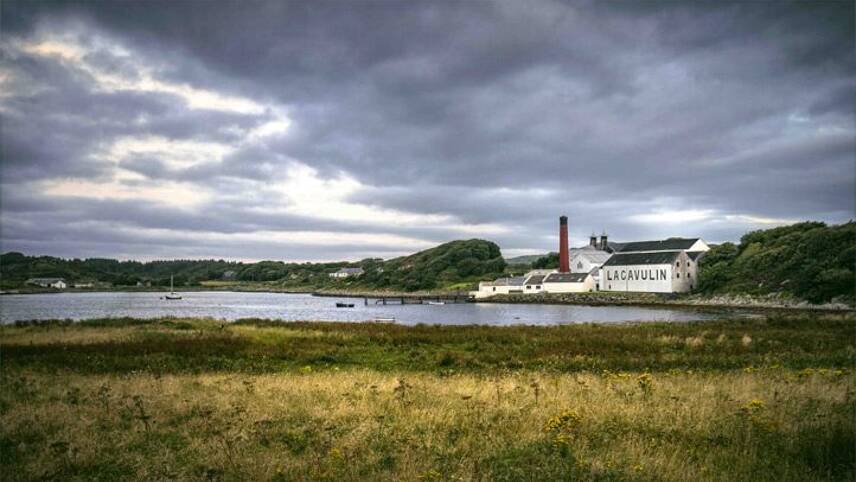Register for free and continue reading
Join our growing army of changemakers and get unlimited access to our premium content

Diageo's Lagavulin distillery (pictured) will achieve carbon-neutral operations by the end of 2020
Published today (23 November), the 2030 strategy is aligned with the UN’s Sustainable Development Goals (SDGs) and commits Diageo to deliver a ‘Decade of Action’ on environmental sustainability, inclusion and diversity and responsible drinking.
The business, which owns brands like Smirnoff and Guinness, said in a statement that the environmental targets will reduce negative impacts across the ‘grain to glass’ value chain.
On carbon, the headline target is a commitment to achieve net-zero operational emissions through a mix of energy efficiency improvements and renewable energy procurement and generation. Two of Diageo’s distilleries in Scotland are on track to become carbon neutral by the end of 2020, and learnings from these facilities will be applied to other locations.
Diageo believes the first geography in which it will reach net-zero operational emissions will be India. It has set a 2025 target for its Indian operations.
Also included in the strategy is a commitment to halve indirect (Scope 3) emissions. Diageo will support smallholder farmers with training programmes on low-emission methods and trial regenerative farming practices – some of which purport to help land sequester more carbon than farming work emits.
Diageo’s chief sustainability officer and president of supply and procurement, Ewan Andrew, said the company is in a strong position to deliver against these targets, having already halved its carbon footprint against a 2007 baseline.
Andrew said: “It is vital that we act now if we want to maintain the wonderful world we all live in… It feels fitting that we are leading the way with Oban and Royal Lochnagar distilleries, which will both be carbon neutral by the end of the year.”
Water, waste and social sustainability
Aside from emissions, the strategy includes a commitment for Diageo to achieve a net-positive water impact in the water-stressed regions in its supply chain and to reduce its water intensity by 30%. The business will also deliver at least 150 community water projects across the world, in a bid to improve access to WASH.
Diageo is notably a founding corporate member of the Water Resilience Coalition, along with businesses like Coca-Cola, Microsoft and AB InBev. The initiative helps the firm to share best-practice learnings from the implementation of its own science-based and context-based water strategy.
There is also a commitment to ensure that all packaging is widely recyclable in all markets in which it is sold, and to reach 100% recycled content in remaining plastics packaging. Just 5% of Diageo packaging produced in 2019 was accounted for by plastics, with the rest largely accounted for by recyclable aluminium cans and bottle caps, glass bottles and cardboard. This proportion has likely decreased with the introduction of cardboard replacements for plastic shrinkwrap on popular multipacks.
On the social sustainability piece, Diageo’s new commitments include:
- Reaching one billion people with messages of drinking responsibly
- Educating more than ten billion people on the dangers of underage drinking
- Upskilling more than 1.7 people for work in the hospitality sector
- Achieving gender parity in the business’ leadership teams
- Ensuring that 45% of the leadership team are from ethnically diverse backgrounds
Sarah George


Please login or Register to leave a comment.